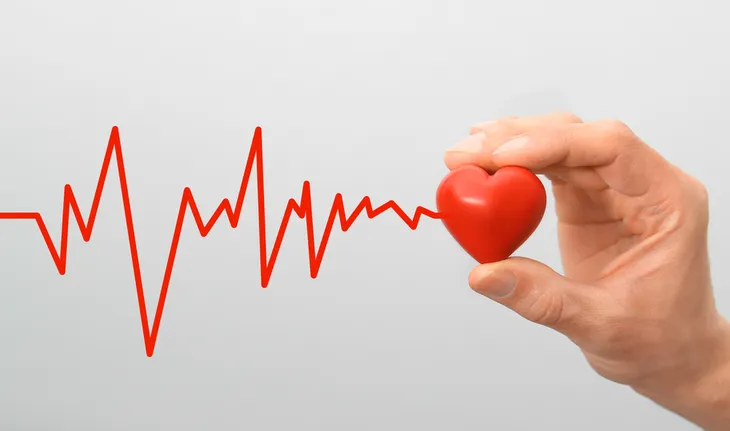- Blood thinners can work to prevent heart attacks by helping your body block your blood’s ability to clot.
- There are two common types of blood thinners: anticoagulants and antiplatelets. Anticoagulant medications work by slowing down the clot formation process of the body. Antiplatelet medications work by preventing platelets from clumping together to form new clots.
- It’s important to consult a doctor when considering a blood thinner as they will work to find the right type and balance of medication for you as an individual.
Prevention is of utmost importance when it comes to heart attacks. If you’ve already had a heart attack, you likely have a higher risk of having a second one, so it’s important to take preventative action to prevent this from happening. There are many lifestyle changes you can make to decrease your risk of having a heart attack, but another common component to prevent heart attacks involves the use of blood thinners.
If you’re at high risk of a heart attack, follow along for our guide on why you may want to consider a blood thinner.
What Causes A Heart Attack
It’s important to understand the facts when it comes to heart attacks and what causes them. Many heart attacks and strokes are caused by blood clots that form in damaged blood vessels. These clots can break away and flow through the circulatory system to the heart or brain, causing heart attacks or strokes.
According to the Centers for Disease Control and Prevention, an average of 610,000 people in the U.S. pass due to cardiovascular disease each year. The American Heart Association reports that many heart attacks are caused by excessive blood clotting and 80 percent of people who have diabetes mellitus pass away due to clotting-related conditions such as heart attacks and strokes. People who have risk factors for excessive blood clotting may be prescribed anticoagulants or antiplatelets to reduce their risks of blood clots and the resulting cardiovascular events.
 Shutterstock/lenetstan
Shutterstock/lenetstanWhat is a Blood Thinner?
Blood thinners, also known as anticoagulant and antiplatelet medications, are a common component to prevent heart attacks because they help to block your blood’s ability to clot. Blood clots can stop the flow of blood to the heart, lungs, or brain. Blood thinners help to mitigate the risk of blood clots by preventing blood platelets from clumping together and slowing the body’s process of clot formation.
Blood thinner medication can be taken orally or intravenously. There are two common types of blood thinners, so it is important to understand the differences between them in order to choose the one best suited to your needs.
 Shutterstock/fizkes
Shutterstock/fizkesTwo Types of Blood Thinners: Anticoagulants vs. Antiplatelets
The two main types of blood thinners are anticoagulants and antiplatelets and it’s important to know how they function differently in the body. Anticoagulant medications work by slowing down the clot formation process of the body.
Antiplatelet medications work by preventing platelets from clumping together to form new clots. They also help to keep existing clots from growing bigger. Both types can help to prevent blood clots and in turn, they can help to mitigate the risk of suffering from a heart attack or strokes due to clots that break free in the bloodstream.
 Shutterstock/Nuria Miranda
Shutterstock/Nuria MirandaHow Blood Thinners Work
While anticoagulant and antiplatelet drugs are commonly called blood thinners, these medications do not actually thin the blood. Instead, anticoagulant medications slow the body’s process of forming clots. Antiplatelet medications work to keep the body from forming new blood clots. They also help to stop existing clots from growing larger.
A patient may be prescribed blood thinners if they suffer from diseases of the blood vessels or heart, atrial fibrillation, congenital heart defects, heightened risk of blood clots following surgery, or a replacement of a heart valve.
 Shutterstock/iVazoUSky
Shutterstock/iVazoUSkyWhen To Consult A Doctor
It’s important to consult a doctor when considering a blood thinner because they will try to find the right balance of medication for you. It’s crucial that blood thinners are taken exactly as directed by your doctor. When you don’t take enough of the prescribed blood thinner, the medication won’t be as effective. On the other hand, taking too much can lead to severe bleeding.
Your doctor will evaluate your case and consider a variety of factor on an individual basis to come up with a treatment plan. A few of these factors include whether you’ve already had a heart attack, if you have a history of surgery, or if you have any other heart conditions.
 Shutterstock/goodluz
Shutterstock/goodluzHow to Choose the Right Blood Thinner: Heparins
The main types of anticoagulants include heparins and coumarins. Heparins work immediately to inhibit specific clotting factors. Since they begin working in a few hours, they are commonly prescribed following surgery and in situations in which acute intervention is required.
There are some newer anticoagulants that also take effect immediately, including rivaroxaban, dabigatran, and apixaban. Since these medications are newer, there isn’t as much evidence about their impact on the body.
 Shutterstock/New Africa
Shutterstock/New AfricaHow to Choose the Right Blood Thinner: Coumarins
Coumarins work by stopping clotting factors that are in the liver from using vitamin K to form blood clots. These medications, commonly referred to as vitamin K antagonists, work by extracting vitamin K from the liver. Coumarins are not effective until two to four days after people begin to take them. They start to work after the clotting factors in the liver break down enough that the liver is not able to produce enough clotting factors to replace them.
Antiplatelets inhibit how platelets function in a couple of specific ways. These medications prevent platelets from attaching themselves to damaged blood vessels, along with keeping platelets from sticking to each other. A common type of antiplatelet medication is acetylsalicylic acid, also known as aspirin. Other antiplatelet medications include prasugrel, clopidogrel, and dipyridamole.
 Shutterstock/Tatjana Baibakova
Shutterstock/Tatjana BaibakovaCommon Side Effects of Blood Thinners
As with many forms of medication, blood thinners do come with a few side effects you should be aware of. A few of the most common side effects include bruises, bleeding from the gums or nose, blood in vomit, blood in stool or red-tinged urine.
Side effects that are rarer include heavy bleeding, strokes, rashes, and hair loss. People who experience heavy bleeding from their gums or nose or who have sudden, severe headaches while taking blood thinners should seek medical attention immediately.
 Shutterstock/SK Design
Shutterstock/SK DesignMedical Risk Factors for Heart Attacks
There are a variety of both medical and lifestyle factors you should be aware of if you’re concerned about having a heart attack. In its 2019 update to the annual Heart Disease and Stroke Statistics, the American Heart Association identifies several risk factors for heart attacks and strokes.
The identified medical risk factors include being overweight or obese, high blood cholesterol, diabetes mellitus, high blood pressure, kidney disease and metabolic syndrome. If you have been diagnosed with any of these medical conditions, it’s important to really pay attention to your lifestyle and the factors you can control to mitigate your risk.
 Shutterstock/5 second Studio
Shutterstock/5 second StudioLifestyle Risk Factors for Heart Attacks
The American Heart Association also identified several lifestyle risk factors that can contribute to the likelihood of suffering from a heart attack or strokes. A few common lifestyle factors that increase your risk include poor nutrition, smoking and tobacco use, sedentary lifestyles, and poor sleep.
The risk factors for heart attacks demonstrate that many people can prevent them by adopting healthier lifestyles. Considering taking blood thinners can also help to prevent blood clotting and eliminate a major cause of strokes and heart attacks. A combination of taking these types of medications in addition to making healthier lifestyle decisions can make a huge impact on decreasing your risk.
 Shutterstock/udra11
Shutterstock/udra11Signs Of A Heart Attack
If you fall in the high risk category when it comes to heart attacks, it’s important to be educated on the first symptoms of a heart attack so you know what to expect if it happens. According to the CDC, the major symptom of a heart attack is pain or discomfort in the center or left side of the chest that lasts for more than a few minutes. This pain will feel like pressure, squeezing, or fullness.
Another common symptom is feeling weak, light-headed or faint. You may also experience pain in other areas such as the jaw, neck, back, one or both arms, or shoulders. Those suffering from a heart attack may also experience shortness of breath alongside their chest discomfort.
 Shutterstock/5 second Studio
Shutterstock/5 second StudioWays to Reduce Risk Of Heart Attack
There are a few key factors that you can take to help reduce your risk of a heart attack and live a long, healthy life. One of the most important steps you can take is to monitor the foods you’re eating and focus your meals around vegetables, fruits, whole grains, legumes, nuts, plant-based proteins, lean animal proteins and fish. It’s also important to monitor your weight, live tobacco-free and stay active as often as possible.
If you have any other medical conditions, be sure to manage these appropriately with medication and lifestyle. If you have high blood pressure, high cholesterol, high blood sugar, or diabetes, these conditions will put you at a higher risk category.
 Shutterstock/Monkey Business Images
Shutterstock/Monkey Business Images


